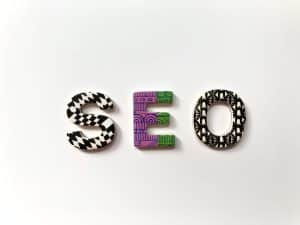Search engine optimisation is made up of many components, each playing a vital role in your website’s success in the highly competitive online environment. Among these components is on-page SEO, which focuses on optimising elements directly within your site’s web pages to enhance performance on Google and other search engines.
SEARCH ENGINES LIKE GOOGLE HAVE HUNDREDS OF RANKING FACTORS IN THEIR ALGORITHMS.
While some of them are out of your control (like the ones listed in off-page SEO that relies on audience perception), some factors you have full control over. On-page signals, including the content on your site, HTML behind the pages, keywords, images, meta description, meta title tag, and many more, can all be optimised so you can have a better chance at the top spot.
On-page optimisation SEO can be complicated and hard to wrap your head around – especially when you’re already running a business. With the help of an on-page SEO agency, you can streamline your digital strategy without taking time away from operating your company.

What is on-page SEO?
On-page SEO refers to the set of practices that aims to improve a page’s search engine rankings, which our SEO Brisbane specialists achieve by optimising on-page elements. Our on-page SEO services include—but are not limited to—the following:
DOMAIN NAME
Much like the giant sign above a storefront, the domain name is one of the first things visitors look at when visiting a site. Search engines also use it to decide the legitimacy of a website.
CONTENT AND KEYWORDS
Keyword-rich content has a major impact on your rankings. Conducting thorough keyword research that understands your audience’s search intent is a crucial part of the content process. When our Brisbane SEO experts optimise pages, they make sure there are at least 2 to 3 target keywords on each page of the site, as well as in the meta titles and meta descriptions.
LINKS AND ANCHOR TEXTS
Optimising your links provides better navigation for site visitors. Use good anchor texts when linking to other people—make sure they give the link meaning and value.
TITLE TAGS
This sends search engines a strong relevancy signal, as it helps them understand the topic of the page. This should be short, but concise and descriptive.
META TAGS
Meta tags should contain a brief description of your site focusing on your products, services, and areas. If customers find it appealing, they will be more likely to click and visit the site for more information.
HEADER TAGS
These are not only used to make fonts appear in different sizes; header tags are also used to differentiate the various sections of a web page, helping search engines know what it is about. It is important to include relevant keywords in the H1 tag.
SITE LOADING SPEED
Fast-loading sites rank better, and more importantly, potential customers will never stick around to browse through a slow site. This is why it is important to make sure your site loads in two seconds or less.
Where to start?
CUSTOMERS VISIT BUSINESS WEBSITES OR E-COMMERCE SITES BECAUSE OF THEIR PRODUCTS AND SERVICES, BUT THE CONTENT IS WHAT MAKES THEM STAY.
If you cannot produce interesting or relevant content, customers may not be inclined to stay on your site long enough to complete a sale.
Even if you work with a highly proficient on-page SEO company, without quality content, appearing on the first page of the search results is nearly impossible. In fact, Google software engineer, Matt Cutts, has repeatedly reminded website owners that quality content is the key to search rankings. Duane Forrester of search engine Bing, also said that all SEO search engine ranking signals revolve around content of some kind.
Here are the key elements of an effective web copy:
- Quality – Search engines want compelling and fresh content that embodies authority and professionalism.
- Uniqueness – Search engines love information-rich content, but there is always a special place for content that is truly unique and does not appear anywhere else.
- Relevance or Value – Search engines reward priority SERP placement to websites with content that readers find informative, engaging and useful.
- Implementing on-site SEO strategies requires a diverse skill set. You need to have an understanding of Google Analytics, write great copy, and understand CSS and HTML — And that is only the beginning. You need to be informed about new developments in the field, test out new ideas, conduct research on the keywords to target, and so on.

Why use an SEO agency?
An on-page SEO agency will act as your dedicated partner in executing strategies to boost your search engine rankings and organic search results. By entrusting your on-page optimisation to professionals, you free up valuable time and resources, allowing you to concentrate on the core aspects of your business operations. These agencies bring a wealth of experience and industry knowledge, ensuring that your website not only meets but exceeds the ever-evolving standards set by search engines.
Working with an on-page SEO agency also provides a fresh and objective perspective on your digital presence. They conduct comprehensive audits, identify areas for improvement, and implement effective solutions tailored to your business goals. This not only enhances your website’s visibility but also contributes to the overall user experience, a critical factor in today’s competitive online landscape.
Conclusion
Stay ahead of the competition by hiring Brisbane’s SEO experts to help you with your SEO strategy. BAMBRICK has 15 years of experience in digital marketing, including on-page and off-page SEO. We have helped over 500 businesses in Brisbane and across Australia, including publicly listed and privately held corporations, get the absolute most from their SEO campaigns. You can reach us by calling (07) 3216 1151 or by sending us a message through our Contact Form.